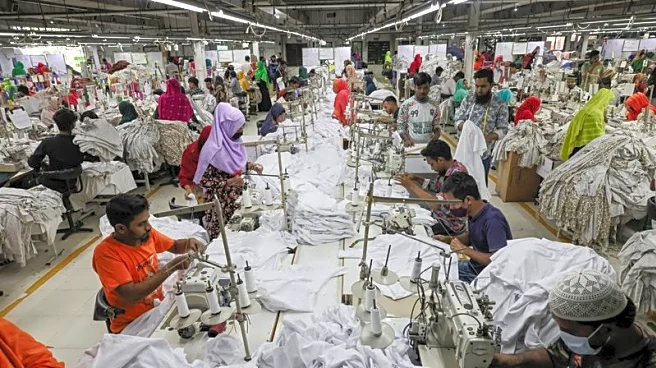What's Happening?
Jonathan Haidt, a prominent social psychologist, has gained significant attention following the publication of his book 'The Anxious Generation,' which addresses the impact of screen time on children's
brain development. Haidt's recommendations include delaying smartphone use until high school, restricting social media access until age 16, and promoting phone-free schools. His book has sparked a movement among parents and educators, leading to policy changes in various countries, including a social media ban for teens under 16 in Australia. Haidt emphasizes the importance of awareness over outright bans, suggesting that technology's influence on attention spans and brain development needs careful consideration.
Why It's Important?
The growing concern over screen time and its effects on children's mental health and development is significant for parents, educators, and policymakers. Haidt's advocacy highlights the potential long-term consequences of early exposure to technology, such as reduced attention spans and increased susceptibility to mental health issues. His influence has led to policy changes and increased dialogue about the appropriate use of technology in children's lives. As artificial intelligence becomes more prevalent, Haidt warns of its potential to exacerbate these issues, making it crucial for stakeholders to address these challenges proactively.
What's Next?
Haidt suggests that the next step involves recognizing certain online spaces as inappropriate for children, akin to casinos or bars. He advocates for continued policy reform to limit children's exposure to potentially harmful technology. As artificial intelligence grows in influence, Haidt calls for increased awareness and regulation to prevent further negative impacts on younger generations. Parents and educators are encouraged to balance technology use with traditional activities to foster healthier development.
Beyond the Headlines
Haidt's work raises ethical questions about the role of technology in children's lives and the responsibility of parents and society to protect young minds. The movement he has inspired reflects a cultural shift towards valuing offline experiences and independence for children. Long-term, this could lead to changes in how technology is integrated into education and daily life, promoting a more balanced approach to digital consumption.












